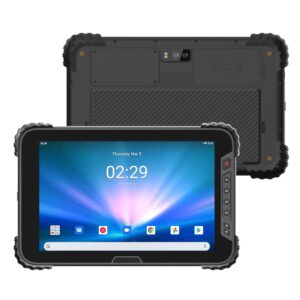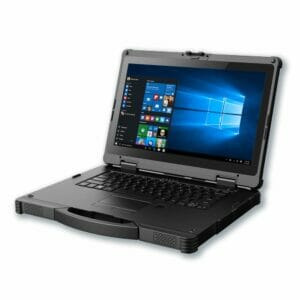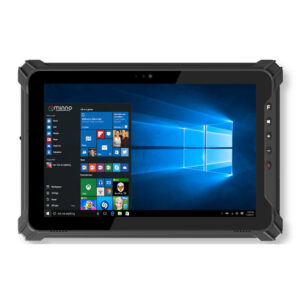A mobile workforce is rapidly becoming a harbinger of productivity and enterprise efficiency.
According to IDC’s “US Mobile Worker Forecast, ”the U.S. mobile worker population will grow at a steady rate over the next five years and will be approximately 75% of the total workforce in 2020. As enterprises adapt to a new competitive landscape that is propelling the move to mobile devices, it’s important to keep focused on specific and measureable goals for the move to mobile commerce. Here are five trends to watch as you move your business into a connected future:
Integrated Functionality
For years, workers in the field have used simple devices to accomplish one or two tasks – diagnostics, billing, contact info, etc. but those devices were useless for the other parts of their job. Today, workers expect to use their device as a multifunctional platform, where they can stay connected to their colleagues and systems to be productive and collaborative wherever they work. (86 percent of corporate executives believe mobile tech positively affects collaboration and productivity). Additionally, mobile technology improves customer engagement and responsiveness, and makes new revenue streams possible.
Trend Watch: companies are increasingly locking tablets and devices to the software, hardware, and applications needed for their business. This allows them to eliminate potentially distracting ancillary functions and use only the software and hardware suitable to their business. Custom tablet integration is an emerging trend for enterprises.
Bring Your Own Device (BYOD)
As mobile device ownership exploded, many companies experimented with BYOD policies (using personal mobile devices for work). It would seem like a win-win, boosting enterprise productivity, while saving corporations from having to invest in fleets of hardware. Unfortunately, BYOD has its own set of concerns and costs such as ensuring connectivity, security, and support for many devices and operating systems, all of which can put pressure on the IT departments – not to mention legal concerns that emerge when balancing an enterprise’s concern for security and control with employee concerns about personal privacy.
Trend Watch: While many companies are beginning to address security risks and continue to welcome BYOD, others are forbidding BYOD all together. Will BYOD continue to be an option for businesses? Or will security concerns, compatibility, and customization begin to overtake the “benefits” of BYOD?
Tablets to Replace Laptops
Some tablets already come with physical keyboard docks and advanced quad-core processors, bridging the gap between power and portability. Detachable (2 in 1) tablets such as Apple’s iPad Pro and Microsoft’s Surface and Surface Pro have grown in popularity because “end users are seeing those devices as PC replacements,” as IDC tablet research director Jean Philippe Bouchard puts it. This tech trend isn’t slowing down; tablet developers are rolling out smarter, faster, and larger tablets with each new model. The adoption of these more powerful devices can enhance the user experience on both the employee and consumer side, while delivering businesses data to increase productivity and revenue. While a majority of workers still proclaim their laptop as their primary work tool, tablets and smartphones are gaining momentum, as more powerful, customized devices become an affordable option.
Trend Watch: Retail tablet sales have cooled in the past 2 years, however, tablets are growing quickly in commercial use and detachable, 2 in 1 devices are speeding that trend. As development continues to improve reliability and mobile workforces become the norm, tablets may yet overtake the laptop.
The Rise of IoT (the Internet of Things)
Gartner predicts that by 2021, one million IoT devices will be sold every hour of every day. So what is an IoT device? An IoT platform is a suite of components that enable the deployment of applications that monitor, manage, and control devices and sensors connected to the internet. IoT devices will talk to every other related IoT device in a wireless environment, enabling the automation and optimization of processes; and communicating usable, real-time data. Ultimately, IoT allows businesses to connect everything – from assets, to vehicles, to employees themselves (think wearable devices, tablets and smartphones), giving them the ability to analyze real-time data to make smarter decisions. Tablets are likely to be the primary portal for controlling devices and viewing data on the go.
Trend Watch: Current IoT use is still small, and security risks are still a concern, but companies are beginning to plan how they can rework key processes to take advantage of the efficiencies of an IoT platform. Will IoT devices grow to that rate Gartner predicts?
Increased Security
As data and information is more widely shared through IoT and received by tablet-toting workers, the potential for breaches intensifies. This is particularly a concern with BYOD policies where private use of mobile devices can increase the risk of data loss or system penetration. New mobile device management (MDM) software is quickly being developed to give IT departments control of data and information to limit vulnerabilities to hackers. The explosion in the number of connected devices and rapid changes in technology and networks continuously create new challenges for companies to consider and secure.
Trend Watch: Customizable devices – both phone and tablet – provide a level of security not seen in retail devices because they are built utilizing either a version of software that is specific to the application or by removing many irrelevant features, thus eliminating areas of intrusion. Will customizable devices become the primary option for businesses looking to achieve more efficient processes and better communication?

Minno stands for Mobile Innovation and Value
Minno is a privately held manufacturer of full-featured, high-performance rugged tablets (Android and Windows) and custom-designed or branded tablets for industry, education, and governments sold B2B in volume at prices well below retail brands. Minno rugged tablets are designed for high performance, durability, reliability, and versatility. Our tablets will change how your business operates and deliver value to customers by delivering productivity, efficiency, and business agility.




